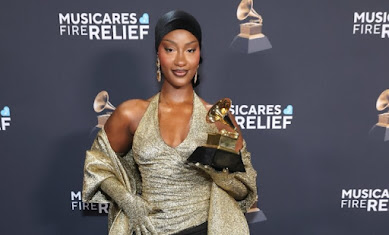In the last
decade, Afrobeats has transcended borders, transformed global music charts, and
redefined the sound of modern pop. What began as a regional genre in West
Africa has grown into a cultural export, influencing artists, dancers,
fashionistas, and fans around the world. Afrobeats isn't just music anymore, it's
a global movement.
Origins
and Evolution:
Afrobeats
(not to be confused with Afrobeat pioneered by Fela Kuti) is a fusion of sounds
rooted in West African music, particularly from Nigeria and Ghana. It blends
highlife, juju, fuji, and traditional African rhythms with global genres like
hip hop, dancehall, R&B, and electronic music. Its bouncy beats, rich
percussion, and catchy melodies make it instantly recognizable—and incredibly
infectious.
Early
torchbearers like D’banj, P-Square, and 2Baba laid the foundation in the 2000s.
Then came the global breakout artists: Wizkid, Davido, Burna Boy, Tiwa Savage,
and Mr. Eazi who refined the sound and pushed it to international airwaves.
Breaking
into the Global Scene:
One of the
genre’s most pivotal moments was in 2016 when Drake collaborated with Wizkid on the hit song "One
Dance", which topped the Billboard Hot 100 and introduced millions of
new listeners to the Afrobeats rhythm. Suddenly, Afrobeats became a reference
point in studios from Lagos to Los Angeles.
By 2019,
Burna Boy’s Grammy-nominated album "African Giant” solidified
the genre’s global credibility. His follow-up, "Twice as
Tall", won the Grammy Award for Best Global Music Album, a landmark
moment that placed Afrobeats firmly on the world stage.
Afrobeats
and Cultural Identity:
Afrobeats is
more than music; it's a bold expression of African identity, pride, and
creativity. From its lyrics, often delivered in a mix of English, Pidgin, and
local dialects, to its energetic dance styles, fashion aesthetics, and visual
storytelling, Afrobeats showcases the richness of African culture
unapologetically.
As African
youths embrace their heritage through Afrobeats, the genre also challenges
outdated stereotypes about Africa, offering a new narrative full of innovation,
vibrancy, and global relevance.
Influence
on Global Artists and Genres:
Today,
Afrobeats has left a noticeable imprint on international music. Major artists
like Beyoncé, Chris Brown, Ed Sheeran,
and Justin Bieber have collaborated with Afrobeats stars.
Beyoncé’s "The Lion King: The Gift" album featured a
heavy lineup of African artists, blending Afrobeats with mainstream pop.
Producers
around the world now incorporate Afrobeats drums and rhythms into their work.
Dance challenges based on Afrobeats songs dominate platforms like TikTok and
Instagram, amplifying its reach with each viral moment.
Fashion,
Film, and Beyond:
Afrobeats'
cultural influence extends far beyond sound. Its vibrant aesthetic, bold
prints, street wear, and traditional accessories have inspired global fashion
houses and designers. Afrobeats artists often double as style icons, setting
trends on red carpets and music videos alike.
In film and
television, soundtracks now feature Afrobeats to infuse authenticity and appeal
to global African audiences. Netflix’s growing African content catalogue is
also helping to reinforce this cultural synergy.
The
Future of Afrobeats:
With
Afrobeats festivals springing up in Europe, North America, and the Middle East,
and streaming platforms dedicating playlists to the genre, the future is
bright. Emerging stars like Rema, Tems, Ayra
Starr, Asake, and Omah Lay are pushing the
sound into exciting new territories, blending alternative styles, introspective
lyrics, and experimental production.
Afrobeats is
no longer seeking global validation, it’s shaping global taste. What was once
considered a niche is now mainstream. And as the world dances to the beat of
Africa, Afrobeats reminds us that rhythm, culture, and connection truly know no
borders.
Have
thoughts on the rise of Afrobeats? Drop your favorite track in the comments and
share this article with a fellow music lover!
#Afrobeats #GlobalSound #AfricanMusic #Wizkid #BurnaBoy #Tems #MusicCulture
#NaijaToTheWorld
EMEKS MUSIC






